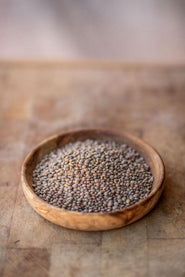Imagine the UK as a beacon for sustainable farming, showing the world how to produce food in harmony with nature, creating thriving local farming communities, protecting wildlife, fighting climate change, sequestering carbon and producing nutritious food for families, schools and hospitals.
It’s a wonderful picture, and it is not impossible to achieve. Yet the current economic influences on farming favour large scale farms who get paid a subsidy (via the Common Agricultural Policy) directly linked to their acreage. This encourages massive specialist farms, often focused on environmentally damaging monocultures that head straight into anonymised commodity markets, where profit rather than protecting wildlife or producing nutritious food is the priority. This and many more complexities around politics, trade deals and the distorted cost of food have bent our farming system into an environmentally damaging machine in the past 70 or so years. Throw in Brexit, politicians making short term decisions based on chasing popular opinion rather than grounded research, all alongside a global pandemic, and no wonder things in farming are a mess.

There is hope however – as a new Agriculture Bill is currently making its way through Parliament. This proposes to replace those economy-skewing direct payments with new schemes to pay farmers for producing ‘public goods’ such as environmental or animal welfare improvements and protecting the soil.
But when is an environmental policy not an environmental policy? When it pays farmers to manage pockets of land and field margins for wildlife amid a desert of intensive, soil degrading activity everywhere else on the holding. That is the danger we are facing, where we replace one ineffective agricultural framework with another. For us to have a hope of remedying the damage that intensive farming is inflicting upon our countryside, we are going to need a whole farm approach from the new Agriculture Bill.
Every farm has a unique topography, microclimate, soil types and ecosystems of water, hedge, copse and field than can only really be best managed by a farmer on the ground, tweaking his farming activities in tune with his land. Small to medium mixed family farms, where farmers know every nook and centimetre of soil, are the best-placed to do this, to nurture our countryside and produce food in balance with nature.

The Sustainable Food Trust says that producing high quality, health-promoting food from production systems that avoid damage to the environment while maintaining and building natural capital, should be the prime objective of a reformed agricultural support package.
“Instead of continuing to make direct payments to English farmers to help them compete against subsidised farmers in other countries, some of which produce to much lower food safety, animal welfare and environmental standards, the Bill will divert agricultural funding to pay for environmental improvements, including tree and hedgerow planting, flood prevention, enhancing cultural and natural heritage, public access to land and unspecified improvements to farm animal welfare. Creating a resilient, productive and profitable food system will require ongoing support for English food producers, at least until subsidies are also phased out in the EU and US,” says Patrick Holden, founder of the Sustainable Food Trust.
“As such, we feel funds to correct past damage should come from other sources, while all future payments should be conditional upon the production of food in ways which enhance, rather than detract from, the environment, human health and animal welfare.”
More pressingly, since the Bill’s original presentation in Parliament the House of Lords inserted amendments that would have ensured that agri-food imports would need to meet our own domestic standards on food, animal welfare and the environment. However just this week these were voted out by MPs, alongside amendments on climate, pesticide exposure and the National Food Strategy.
As the Bill heads back to the Lords, let’s hope what is yet to unfold allows this country to be the beacon of sustainable farming we all want, need and hope for.

"By enshrining into law the requirement for food imports to be of equivalent quality to domestic food, and for public scrutiny of trade deals, MPs will be providing the bedrock from which British farmers and food producers can build a more sustainable and thriving future. Surely this is something worth championing."
This campaign is backed by an alliance of regenerative agriculture organisations made up of the Soil Association, Sustain, The Biodynamic Association, Farms to Feed Us, Pasture for Life, Our Isles and Farmerama Radio.










